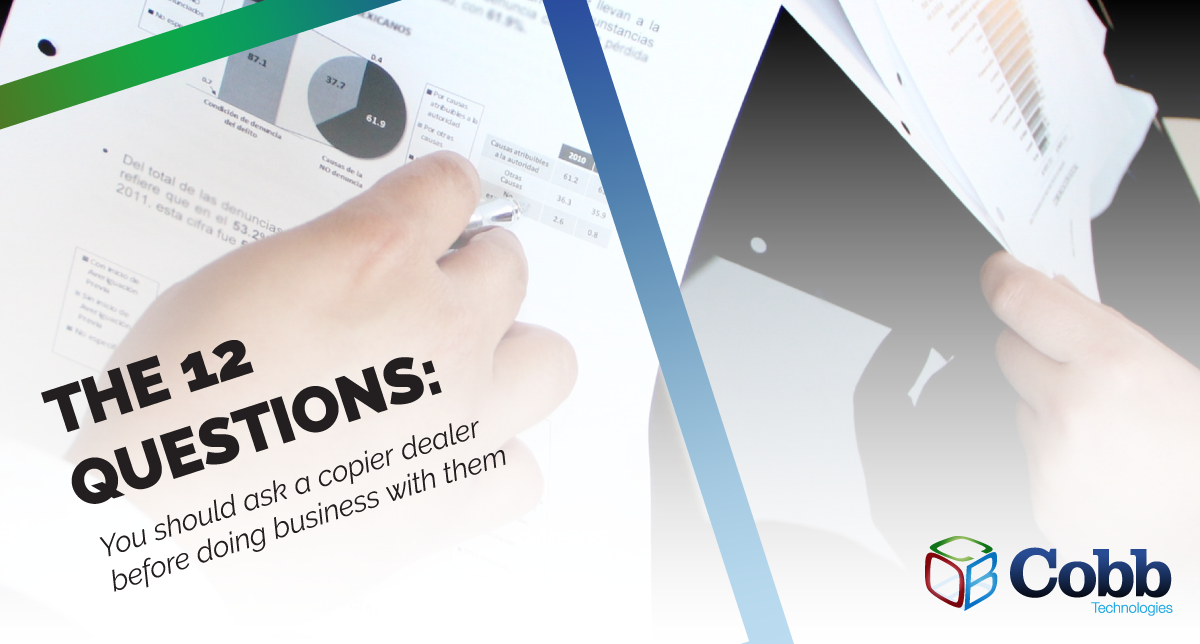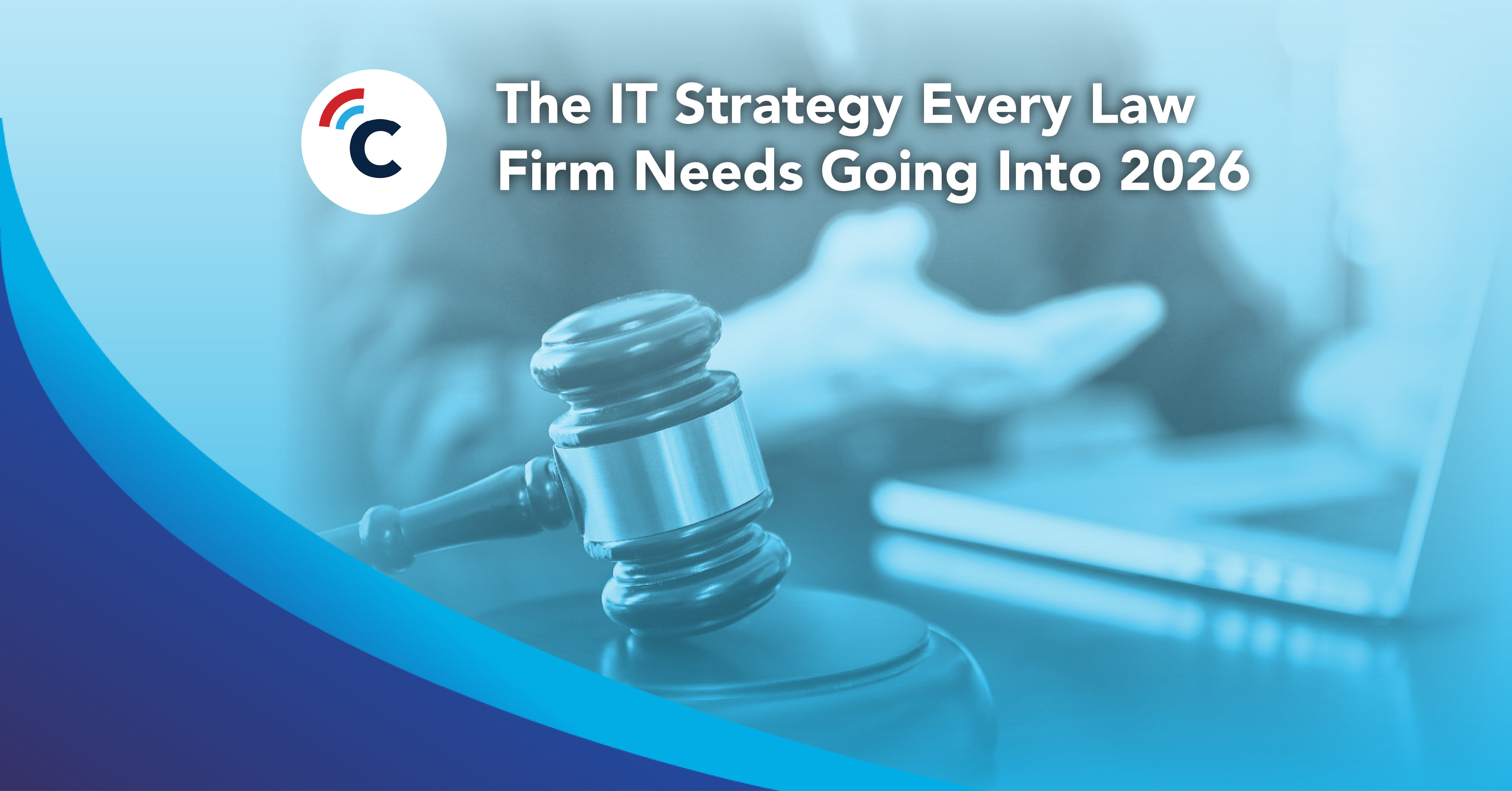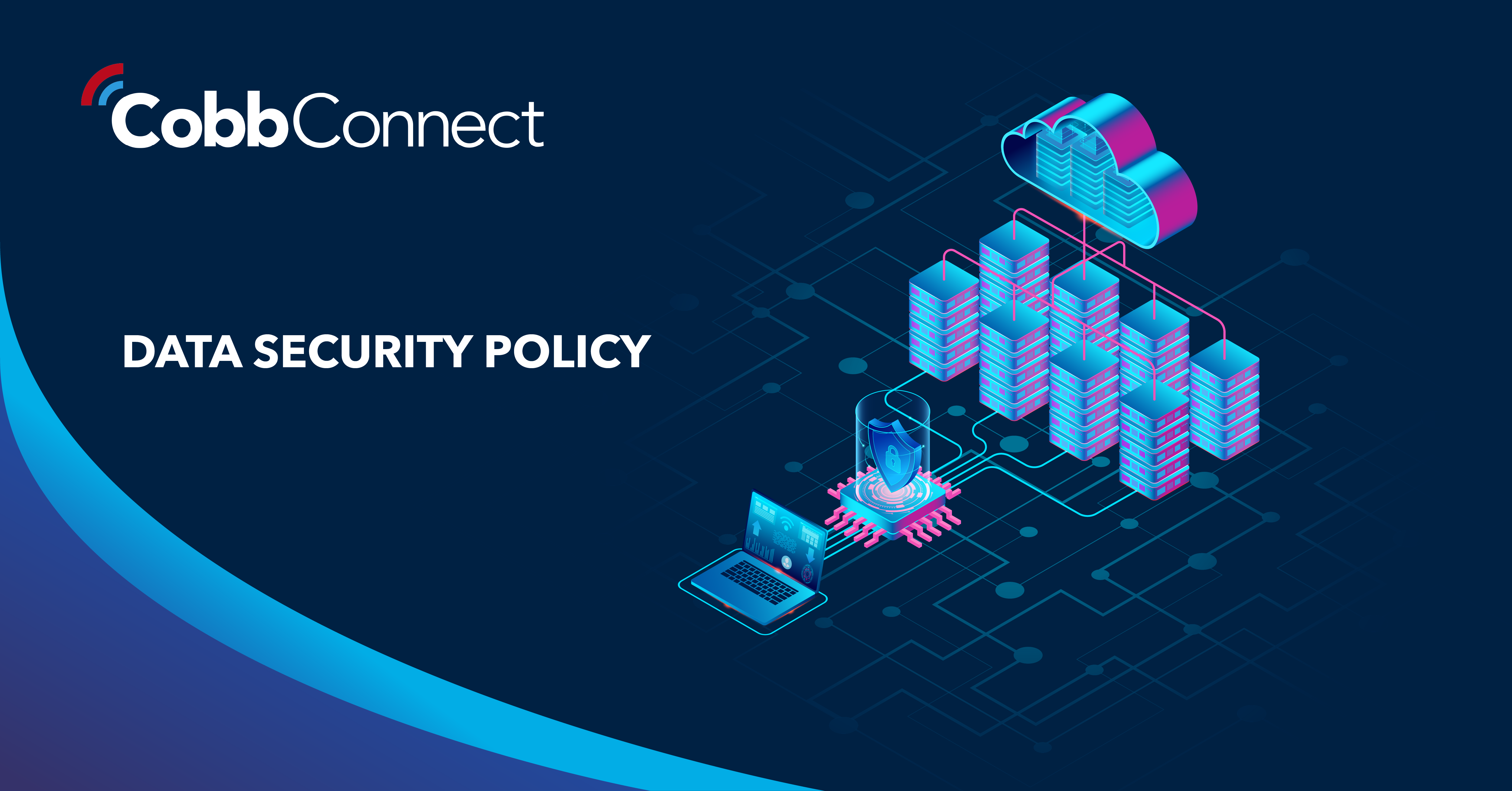11 min read
Best IT Strategies for Law Firms Going Into 2026
Why should a law firm invest in a strong modern IT strategy? Today’s legal teams depend on secure, reliable technology to protect sensitive...
5 min read
 Peter Larsen
Mar 17, 2023 1:23:11 PM
Peter Larsen
Mar 17, 2023 1:23:11 PM

What should you know about a copier service provider before purchasing a copier from them? Are there certain questions you should ask to make sure you’re partnering with a reputable, well-meaning business?
There’s nothing worse than signing a lease with a company that doesn’t have your best interests at heart.
So, before you make any decisions that will remain with your company for the next three to five years, here are a few questions you can ask your potential copier service provider:
This question is important, but probably not for the reason you’re expecting. When it comes to the sticker price of your copier or printer, there’s very little influence your potential provider has. What this question will inform, however, is how open and honest a particular copier dealer is about their business practices.
If they begin to bring up hidden costs such as leased equipment shipping returns, overage charges, remote support, or even the fact that you need to pay an insurance bill for your leased equipment, you know you’re in good hands.
If they avoid speaking about these things or attempt to change the conversation when you bring them up, you may not be dealing with the most transparent company.
Did you know that some copier dealers only employ two or three technicians per state? Sometimes, organizations are forced to wait weeks until an available technician is ready to visit them on-site to diagnose and possibly fix the problem their copier is experiencing.
This is why it’s important to have a set number of technicians dedicated to a specific area — this drastically improves the dealer’s response time, and helps technicians become familiar with their customers’ needs.
Throughout the printer and copier industry, there are two metrics that are measured when calculating a service provider’s response time:
The industry average for the first metric is 2 hours, and the industry average for arriving on site is 24 hours. The time it takes your service provider can vary drastically depending on the situation — but the most common delays are due to waiting for parts and consumables to ship.
Any business can say they’re the best. The only real way to verify that is by speaking with their current customers. Long story short, if they aren’t able to provide you with a customer reference within 24 hours, they probably aren’t the best at managing their customer relationships, and you should move forward with caution.
The most important part of your buying process is discovery. Your copier/printer dealer should work with your organization, and especially your key operators, to figure out what features your new copier will need, and what options fit your budget.
If your potential provider isn’t asking questions and is presenting you with top-of-the-line options without reasons for including the features they’ve chosen, they most likely don’t have your best interests at heart.
Third-party copier dealers have the option to become accredited dealers for a particular brand — for example, Cobb is accredited by manufacturers like Canon and Konica Minolta — among many other hardware and software solutions.
To become accredited by a manufacturer, the dealer must prove that a high percentage of their technicians are trained and certified to service their particular models of equipment and prove that they have the infrastructure to support the customer’s service plans.
If a dealer isn’t accredited, you’re gambling on the fact that they will provide you with the service you need, when there is no way for them to prove that they actually can do so.
While a business doesn’t have to be local, it does help. Large businesses will often have access to huge support networks — but that often means they can be bogged down by overly complex systems, and a lower prioritization of your organization’s needs.
Plus, locally-owned businesses are more likely to understand what your organization actually does, and are therefore more likely to cater their services to you. Locally owned businesses allow for a faster decision-making process, as all of the decision-makers are located in your area.
Additionally, local businesses pay taxes to their state and county — so the dollars you spend with them will eventually make their way back into your community.
The technology in a copier/printer is changing all the time. Because of this, technicians need to regularly update their skillset to ensure they know how to operate on new models.
There are many ways technicians can hone their skills — but each manufacturer offers its own technician training certification. For example, Canon has ATSP certification, and Konica Minolta has its Pro-Tech certification.
Using a copier/printer to produce documents is great. Managing your print environment is better. With print management, you can control who is printing, what they’re printing, how much they’re printing, and when they’re printing.
Plus, with insight into usage metrics, you can truly get a clear picture of your printing costs.
Another metric you can ask about is their uptime. While uptime will change depending on the make, model, and age of your equipment, there are a few things copier dealers can do to decrease your downtime.
For example, a dealer could equip each of their service vans with parts and consumables specifically catered to the needs of their clients in their particular territory, or enable a remote-fix solution to reduce time spent waiting for a technician to arrive on site.
The most impactful aspect of your copier dealer on your organization’s uptime is how well their technicians are trained. If a technician has the knowledge and experience to diagnose a problem before it arises, you can expect much less frequent interruptions in your day-to-day operations.
In the copier industry, “first call resolution” refers to a reported problem being fixed on the first visit a technician makes to repair the issue.
For example, if a technician visits an office reporting that their copier is jammed, and the technician fixed the jam on their first visit for that problem, it would add to their first call resolution efficiency. If they were unable to fix the problem on their first visit — regardless of the reason (even missing parts) — it will detract from their first call resolution efficiency.
Net Promoter is an independent customer satisfaction scoring system managed by BEI/Nexera. Net Promoter sends out customer satisfaction surveys after visits from copier technicians.
Net Promoter doesn’t just measure the customer satisfaction of copier dealers, however — they measure retail and other service-based industries as well.
What’s important to know is how Net Promoter measures the value of scores. On their zero-to-ten scale, a nine or a ten is considered high-quality service. A seven or below is considered low-quality service on the business’ part.
If you ask for a Net Promoter Score (NPS), and your prospective copier dealer responds with a score of 85 or above, you can rest easy knowing you’re speaking with a company that doesn’t just say they’re good — their customers think so as well.
Do you have a question about printing, copying, scanning, or faxing? Reach out to us here. We’re more than happy to answer your questions!

11 min read
Why should a law firm invest in a strong modern IT strategy? Today’s legal teams depend on secure, reliable technology to protect sensitive...

2 min read
The Louvre’s password became the punchline of a global story after a heist revealed major security concerns for the museum. Reports say the password...

6 min read
Organizations of all sizes handle enormous volumes of data. Data is one of the most valuable assets of any organization.Unfortunately, it’s also a...